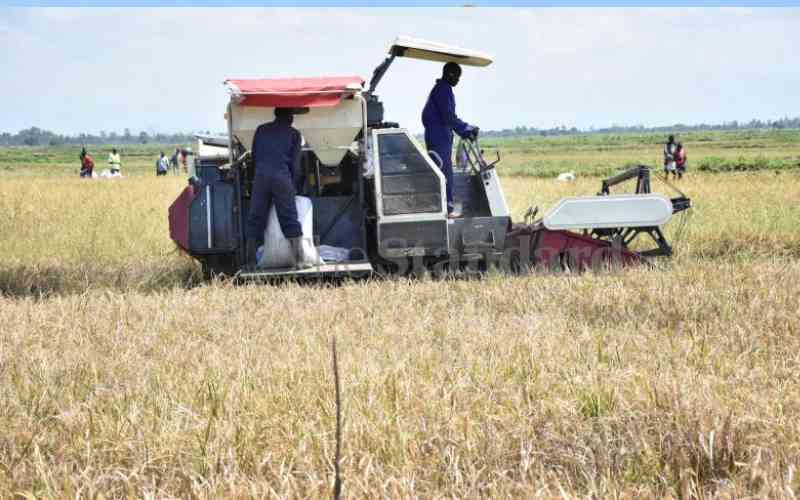
Stakeholders in Agribusiness have called for the establishment of a transformed food system in Nyanza counties to help improve food security.
There are concerns a lack of proper systems bringing together farmers and youths engaged in agribusiness is a major gap impeding the quest to make the region food secure.
The stakeholders include young farmers, entrepreneurs, private players and investors in the agriculture sector, agricultural experts and officials from county governments.
They are pushing for a change in agricultural practices in the region with a focus on regenerative agriculture. Experts believe the system will be instrumental in promoting food production.
Regenerative agriculture is an outcome-based food production system that nurtures and restores soil health and protects the climate and water resources.
They want a rejuvenated extension, a proper finance mechanism, and institutional policy awakening to include farmers and also to bring on board farmers' knowledge to have sustainable and transformed food systems in the region.
According to the stakeholders, a transformed food system will also reduce the percentage of every Sh100 that households are spending daily on food.
Speaking during a Regenerative Agriculture Conference held in Kisumu, young farmers noted that there is a need for integration of climate change in the food systems approaches.
Philip Pande, an advisor on food systems from Kisumu challenged the six Nyanza counties to develop infrastructure that prioritizes food production.
According to John Otuoma, a principal scientist at KEMFRI, a transformed food system must look at economic, ecological and social sustainability.
"We need to have a system responsive to the needs of the people. We need to pull factors in the system together so that they are aligned in coming up with solutions. We need a food system operating in an environment where policymakers can engage," he noted.
Dr David Mudavi an expert in Regenerative agriculture also said there is a need to look at innovations in fertiliser systems for farmers and also elements of cost of credit.
He called for clear, affordable, financially sustainable mechanisms to support farmers and youths as producers and also support other key players within the value chain.
"Let us also put more innovations in addressing pests and diseases," said Dr Mudavi.
Akinyi Walender, the Africa director at Practical Action which is currently supporting about 6,000 youths in regenerative agriculture and agribusiness business in Kisumu and Homabay counties said there is need for a change on how farmers conduct agriculture.
Walender stated that there is a need for residents to stop using destructive farming practices associated with the heavy use of chemicals, biodiversity loss, land degradation, climate change and other existential challenges.
"We also need to transform our smallholder farming systems to reduce land degradation while maximizing productivity and incomes. There is no doubt that conventional agriculture needs urgent reforms."
She said that African societies have been practicing various forms of regenerative agriculture for centuries but the indigenous knowledge has been gradually eroded by the rapid growth of conventional agriculture.
"We need to harness this traditional knowledge and integrate it with the latest science to ensure productive and sustainable food systems, including for smallholders who form the majority in the continent," added Akinyi.
Kisumu Governor Anyang Nyong'o said the efforts by Practical Action to introduce regenerative agriculture is a major step towards establishing sustainable food systems.
"These approaches also emphasize the focus on building resilient livelihoods
through regenerative agriculture and agribusiness. I support this approach because I know this is the most practical way to change the world through the eradication of poverty," he added.